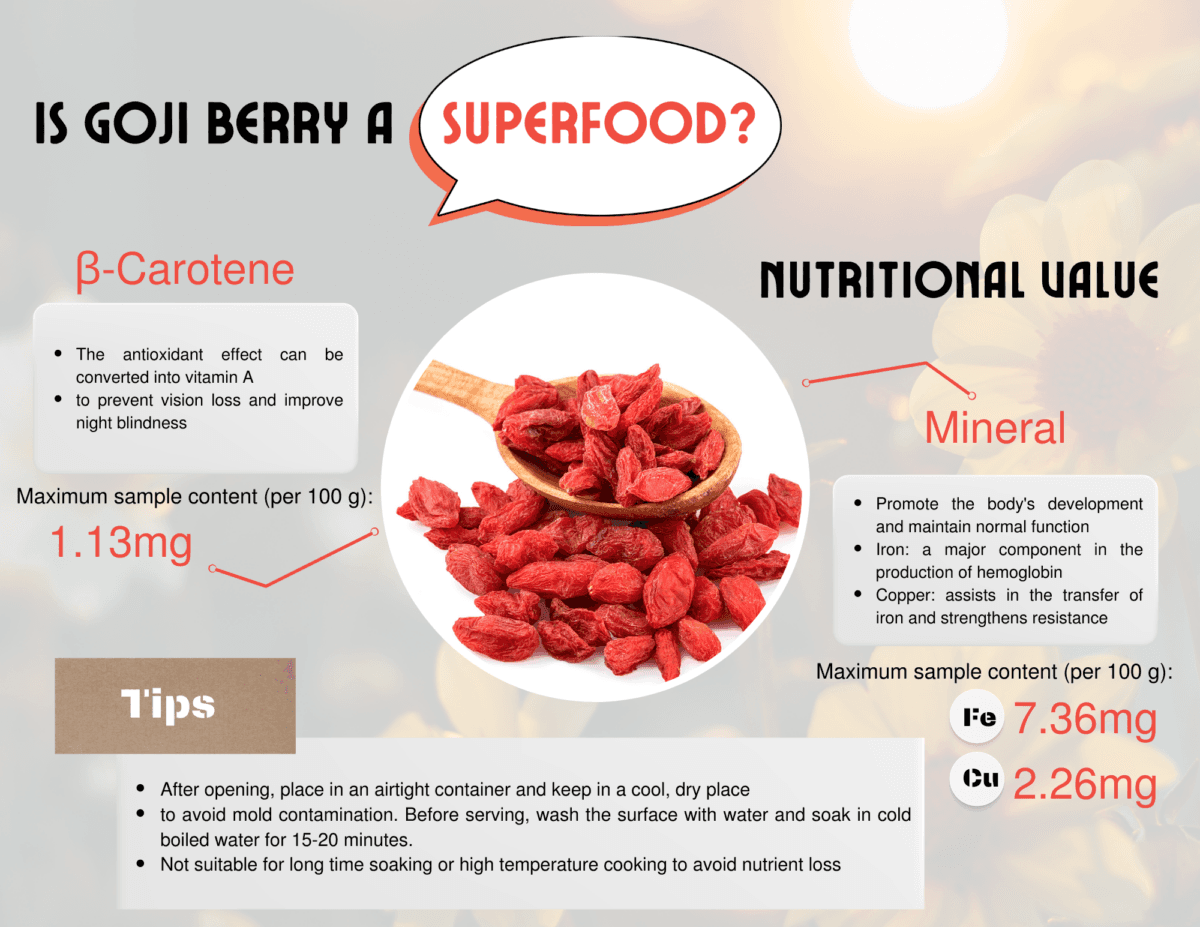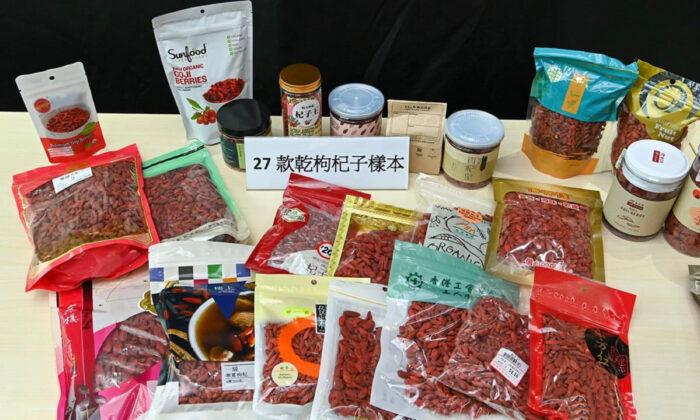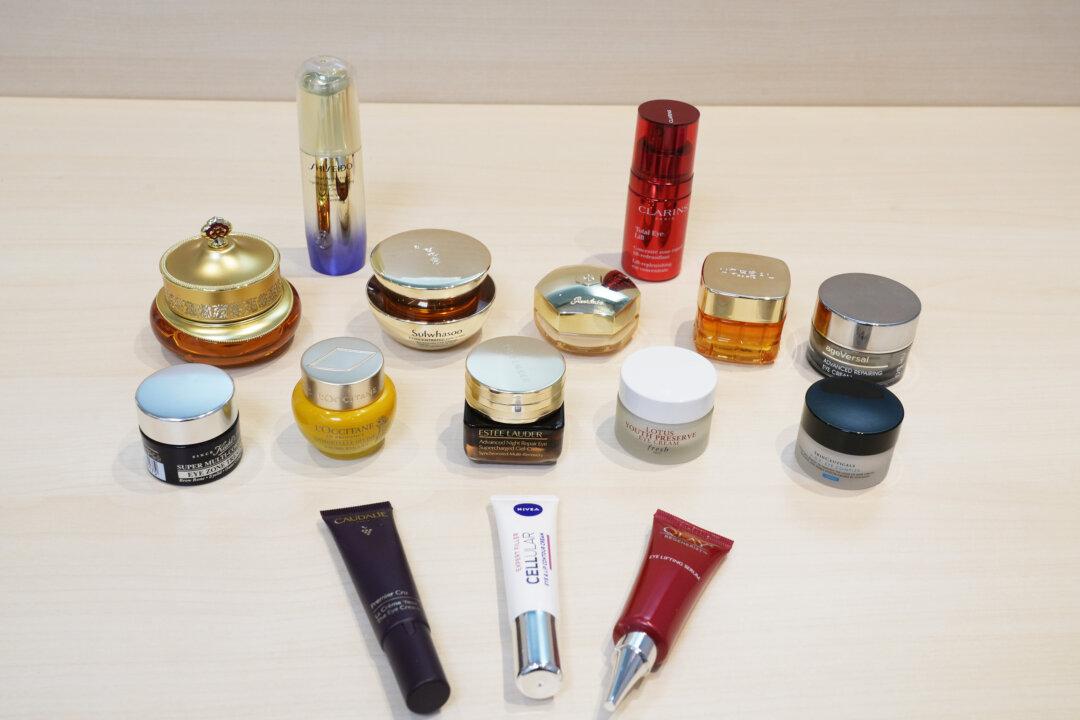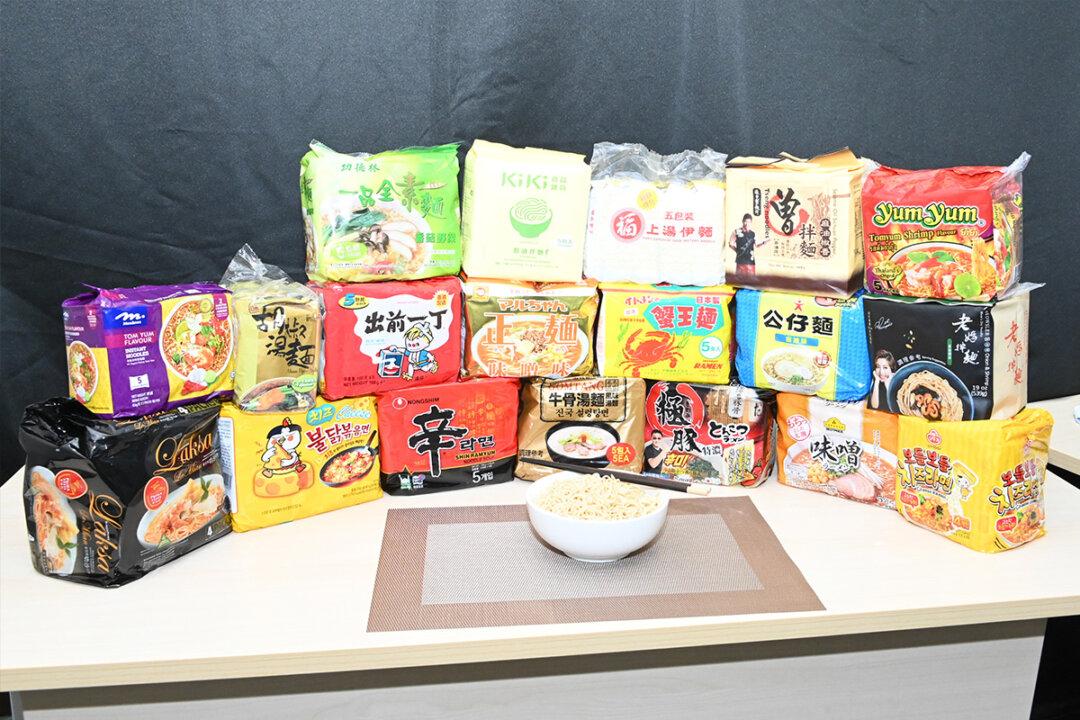Over the past few years, numerous readily available dried goji berry snacks have hit the market. A recent test conducted by the Hong Kong Consumer Council on 27 samples of dried goji berries revealed that all of them contained various types of heavy metals.
More than 70 percent of the samples were also found to contain pesticides. The Consumer Product Safety Commission is particularly worried about the possibility of a “cocktail effect,” which could pose serious health risks to consumers.”

According to recent testing, 21 out of 27 samples contained lead, with levels ranging from 0.018 mg to 0.29 mg per kilogram. The two with the highest levels of lead were nearing the upper limit of the Hong Kong Food Adulteration (Metallic Contamination) Regulations.
Following the discovery, the Consumer Council has referred the results to the Centre for Food Safety for further action.
According to the Consumer Council, studies have revealed that prolonged exposure to lead through the diet can impair children’s neurodevelopment and intellectual growth and elevate the systolic blood pressure of adults.
Therefore, consumers are strongly advised to refrain from consuming it. Moreover, all samples contained cadmium, three contained chromium, and two contained arsenic, but the detected levels were below the regulatory limit.
Furthermore, each sample was examined for its iron content, with six samples found to be classified as “high-iron” food items. This means these foods contained at least 4.5 milligrams of iron per 100 grams of solid food, with the highest iron concentration reaching 7.36 milligrams.
Additionally, the Consumer Council pointed out that goji berries have a medium to high vitamin C content, which can aid in iron absorption. As a result, goji berries can be used as a daily iron supplement for vegetarians or those who cannot consume meat.
Regarding the copper content, out of 26 samples, all were categorized as having “high copper” levels. However, one of the samples exhibited a copper content of 2.26 mg per 100 g, exceeding the permissible limit for heavy metals set by the Chinese Pharmacopoeia for goji berries.

One Type of Goji Berries Contaminated with Seven Types of Pesticides
To detect pesticides, the Consumer Council conducted tests on 19 samples and discovered 14 different types of pesticides. Two of these samples were found to have exceeded the maximum residue limits established by the European Food Safety Authority, with a recorded concentration of 0.062 mg/kg of chlorfenapyr and 0.071 mg/kg of chlorothalonil. However, it is noteworthy that these levels were lower than the standards set by the Hong Kong Pesticide Residues in Food Regulations for fruiting vegetables (other than cucurbits).Furthermore, the Consumer Council has identified four samples containing a combination of five or more different pesticides, with one sample detected with a mixture of seven different pesticides. The Council has warned against the potential “cocktail effect” of such mixed pesticides that can increase consumer health risks.
Consumer Council Reminds Consumers to Wash Goji Berries Before Eating
The Consumer Council advises that goji berries are susceptible to mold contamination once opened and should be stored in sealed containers in a cool, dry place. Before consumption, consumers are advised to wash the berries with cold water and soak them in cold boiled water for 15 to 20 minutes to reduce harmful residues on the food surface. However, it is not recommended to soak them for an extended period, nor is it advisable to cook them at high temperatures for prolonged periods. Doing so may lead to losing water-soluble nutrients like vitamin C and minerals.Moreover, the Consumer Council referred to a study on Chinese medicine, which suggests that Goji berries are suitable for individuals who experience symptoms such as soreness in the waist and knees, dizziness, and tinnitus. However, people with spleen deficiency, dampness, heat, and phlegm, should avoid regular consumption of goji berries.




